Reversing Global Warming:
Carbon Farming for Food, Health, Prosperity and Planet!
Speakers and Books
BOOK RECOMMENDATIONS
Comeback Farms by Greg Judy (Green Park Press, 2008)
Restoration Agriculture by Mark Shepard (Acres USA, 2013)
Cows Save the Planet by Judy Schwartz (Chelsea Green, 2013)
Grass, Soil, Hope by Courtney White (Chelsea Green, 2014)
Teaming with Microbes by Jeff Lowenfels & Wayne Lewis (Timber Press, 2010)
Water: A Natural History by Alice Outwater (Basic Books,1996)
The Biochar Revolution by Hugh McLaughlin (Contact Hugh McLaughlin 978-448-6414)
Nature’s Second Chance
Restoring Ecological Health to Your Land
The Restoring Ecological Health to Your Land Workbook
by Steven Apfelbaum (Island Press)
Gardeners of Eden by Dan Dagget (Thatcher Charitable Trust, 2005)
Bringing Nature Home by Doug Tallamy
The Living Landscape by Darke & Tallamy
Healing Natures by Robert L. France
Biomimicry, Innovation Inspired by Nature by Janine M. Benyus
The Green Boat by Mary Pipher
Live Free and Farm: Food and Independence in the Granite State by John Carroll (free e-book, available here)
SPEAKERS
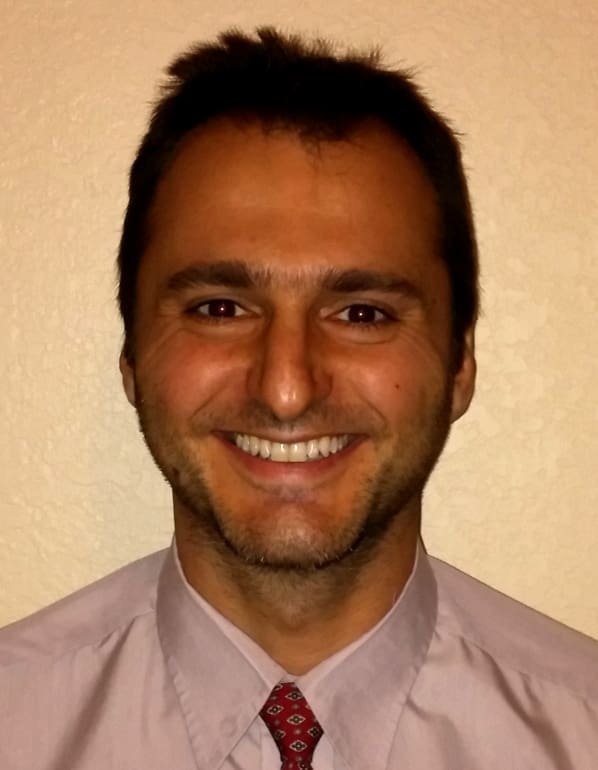
Engin Atasay is an Assistant Professor of Education at Bristol Community College. In 2014, he received his PhD is Social and Philosophical Foundations of Education from the Department of Education, Culture and Society at the University of Utah. His research addresses dialogues for democratic learning and social equity and he uses eco-literacy as a framework for educators to question and challenge mainstream and modern categories of learning in order to encourage culturally appropriate education.
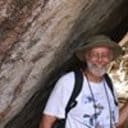
Jim Corven is a professor of Sustainable Agriculture, Plant Science, and Biology at Bristol Community College. He is the faculty advisor for the student club Seeds of Sustainability (SOS), faculty member of the BCC Sustainability Committee, and serves on the Staff & Faculty Senate. Jim’s current research involves a study of sustainable agriculture educational programs at community colleges across the country. Before joining the BCC in 2006 Jim lived in Central America for 22 years working for agricultural and conservation focused non-governmental organizations. He currently lives on his small farm-homestead in Vermont.
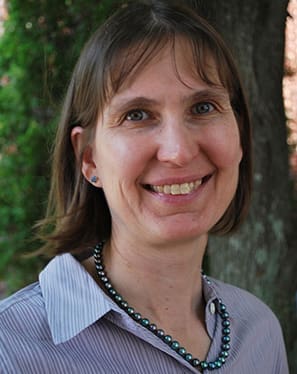
Gillian Davies is a senior wetlands and soil scientist who provides scientific and regulatory consulting to public and private sector clients, as well as expert witness testimony. Her consulting expertise encompasses state and federal permitting, wetland delineation, impact analysis, mitigation planning and design, difficult wetland soils evaluations, vernal pool evaluations, construction monitoring, and peer reviews for Conservation Commissions. She also teaches numerous workshops relating to wetlands.
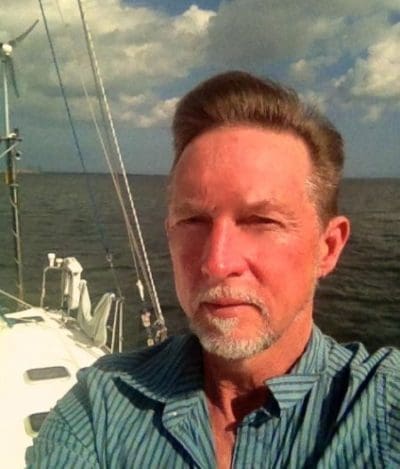
Bruce Fulford is President of City Soil & Greenhouse LLC. He has pioneered composting, biothermal energy, four-season crop production and stormwater management practices and projects for more than 30 years. His integrated projects are models of efficient and equitable resource management that reduce greenhouse gas sources and mitigate the effects of climate change. His company operates the City of Boston’s composting site, and manufactures and delivers locally-produced composts, mulches and amended soils and technical assistance to a broad client base. He works closely with national and community-based organizations in land remediation, agricultural business development, fund raising, and job training. He is a member of the Massachusetts Audubon Society Council and its Climate committee.
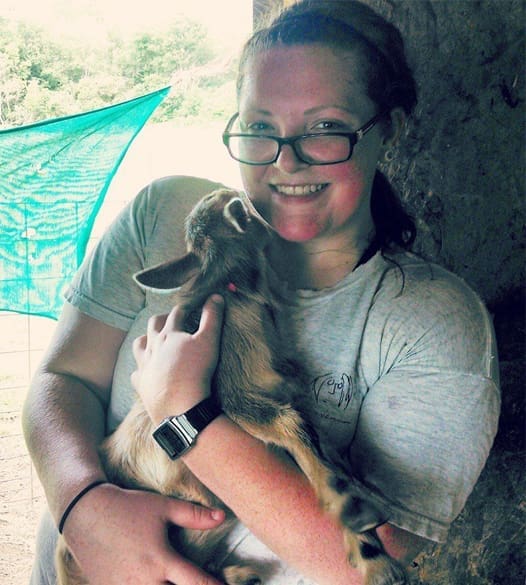
Rachael Furlong is a full-time student at Bristol Community College. She is a very active member of Seeds of Sustainability; a student club on the Fall River campus. Rachael will be graduating with an Associate’s degree in General Studies with a concentration in Sustainable Agriculture this Spring. In the Fall, she will continue her education at UMass Amherst studying Sustainable Food and Farming. Picture taken from her past volunteer experience on Rosasharn Farm in Rehoboth, MA.
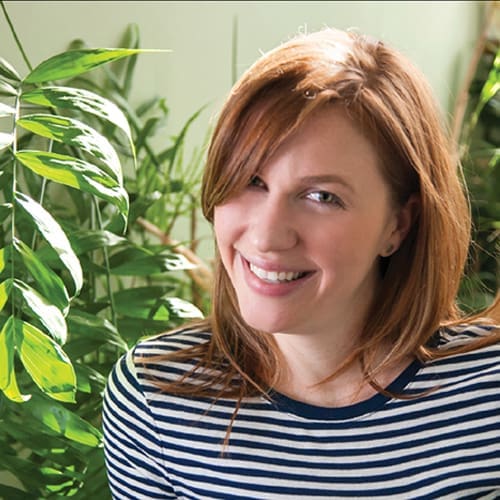
Zoe Hansen-DiBello is a Providence, RI native who now resides in the South Coast of Massachusetts. Zoe graduated from the University of Connecticut in 2008 and is currently working towards a PhD in Educational Leadership at the University of Massachusetts Dartmouth. Zoe has worked for the Marion Institute since 2009 and co-founded the Grow Education Program in 2013, which she manages in New Bedford Public Schools. Grow Education seeks to empower public school teachers and students through the creation of school-based gardens. Zoe is a graduate of Leadership SouthCoast, serves on the Education Roundtable in New Bedford and has been a Big Sister to a New Bedford student for the past three years.
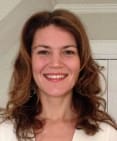
Sarah Howard is the Executive Director of Earthos Institute in Somerville, Massachusetts. Her work has focused on building community and regional resiliency and vitality as well as ecological and justice issues. She has taught experiential environmental education and founded community learning centers in urban areas, worked for cultural institutions to develop community partnerships/education, served as an elected Housing Commissioner in Westport MA, and served as Urban Agriculture Ambassador in Somerville. To better understand the interface between people, land, and food, Sarah started walking across regions; her experiences and research led her to study architecture and public policy, focusing on sustainable design and regional resiliency. In 2009, she co-founded Earthos with the conviction that we need different kinds of knowledge and methods to support the emergence of sustaining, resilient community-to-bioregional systems. She also teaches sustainable/bioregional urbanism and experiential learning methods at the Boston Architectural College.
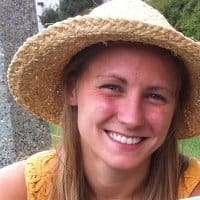
Emily Jodka is a life long gardener and New Englander who currently lives in Pawtucket, Rhode Island. Emily Co-founded the New Urban Farmers in 2008 with Bleu Grijalva, which started as a grassroots movement in a community garden that grew into a non-profit that provides education and an opportunity to grow and eat fresh food grown without chemicals. As part of the New Urban Farmers Emily has grown everything from farm favorite crops to fruit trees, and has also used other methods such as aquaponics and mushroom cultivation. Emily is the Co-Director at the New Urban Farmers and a high school teacher in Providence.
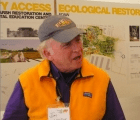
Jim Laurie, Restoration Ecologist, is a biologist from Rice University and is a pioneer in biological remediation of waste water. He was the technical manager of the world’s largest “Living Machine” project to clean raw municipal sewage with no toxic chemicals. The facility, through a grant from the EPA, processed 80,000 gallons/day using the “living machine” methodology invented by ecological visionary, and Buckminster Fuller Award recipient, John Todd.
Prior to that, for twenty years Jim was a biologist and trainer in the chemical industry in Houston, TX, where his work with living machines resulted in processing effluent cleaner than possible with conventional technology. Jim has also been a passionate advocate for Holistic Management of grasslands in the past decade. He began studying with Allan Savory twenty years ago in Texas, has spoken about Holistic Management at Harvard, MIT, Tufts, the Stockholm Environment Institute, and at meetings of the Massachusetts Climate Action Network (MCAN) and Northeast Organic Farmers Association (NOFA), and has been instrumental in spreading the message in New England. Jim is also co-founder of a lively and sophisticated Google Group, Soil-Age, and he invites you to join! He is also chief scientist at Biodiversity for a Livable Climate.
William McCaffrey is a small farmer from East Taunton, MA, where his family grows cranberries, strawberries, and hay. After eight years of studying agriculture in upstate New York and abroad, William has joined his parents to expand the range of production on Spring Rain Farm. His primary interests are tree fruit and meat livestock, focusing on models replacing petroleum-based inputs with ecology.
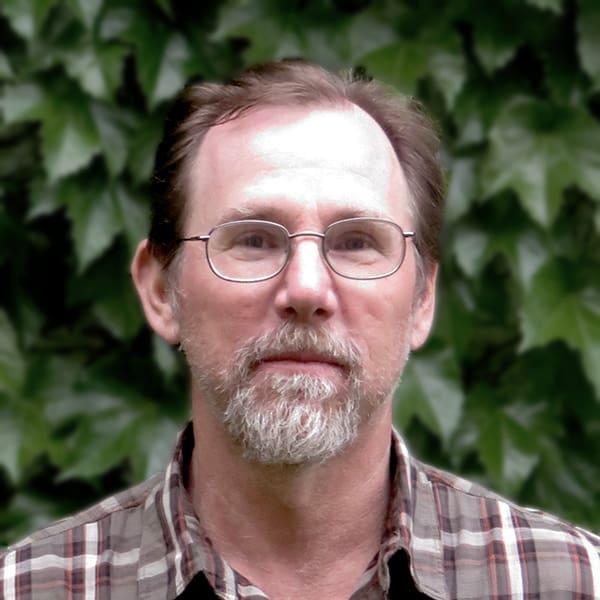
Jono Neiger is a founding partner of Regenerative Design Group with 24 years of professional experience in permaculture, ecological land design, site planning, community development, agroforestry, land management and conservation, and restoration. Mr. Neiger teaches widely around the northeast and southeast at colleges, workshops, and conferences on the topics of permaculture, ecological design, sustainable water use, and productive conservation, and holds a core faculty position at the Conway School of Landscape Planning and Design and is the founding Board President of the Permaculture Institute of the Northeast. Mr. Neiger worked as the land manager for Lost Valley Educational Center for five years, as the Conservation Officer for the Town of Palmer, MA for 5 years and a Restorationist with the Nature Conservancy in California for two years. He holds a B.S. degree in Forest Biology from S.U.N.Y. College of Environmental Science and Forestry, Syracuse, N.Y. and a Masters in Landscape Planning and Design from Conway School of Landscape Planning and Design, Conway, MA.
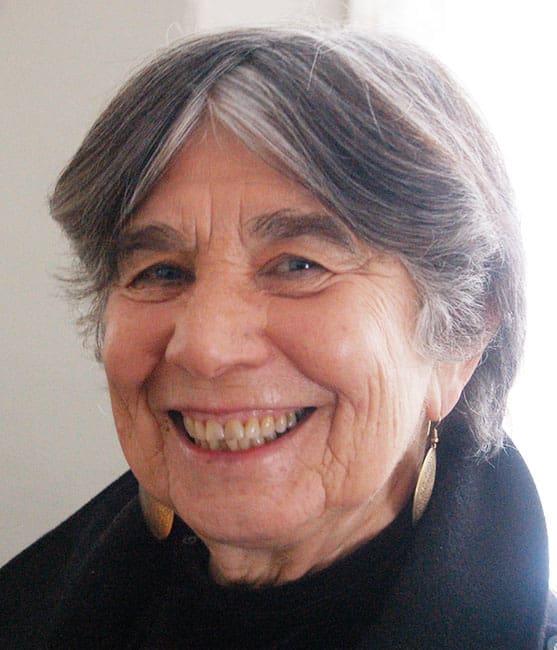
Paula Phipps is a multi-culturalist with special interests in supporting culturally and linguistically competent programs and advocating for at-risk children and families. Her passion is developing curriculum that credits children with curiosity, creativity, openness, and a high interest in learning – and provides the knowledge and skill base needed at this time. That knowledge and skill base must now include preparation for climate change. Her new workshop, Preparing Young Children for Climate Change, was recently presented at the Cambridge Public Library.
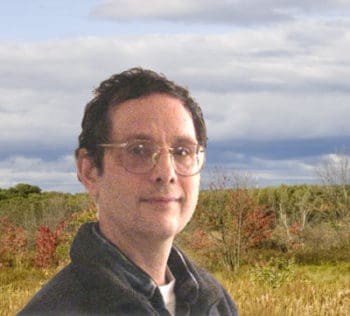
Adam Sacks is the Executive Director of Biodiversity for a Livable Climate. He has had careers in education, holistic medicine, computer technology, politics and advocacy. For five years he directed a non-profit that worked with communities invoking basic democratic and constitutional principles to oppose detrimental local corporate activity. He has been a climate activist for the past thirteen years and has been studying and writing about Holistic Management since 2007. On the side he is an artist, writer and student of classical piano. His primary goal is regeneration of biodiversity and a livable planet.
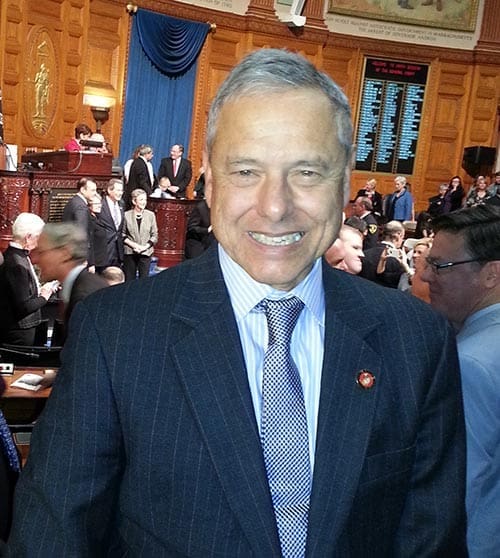
Paul Schmid is the Massachusetts State Representative for the 8th Bristol district and Vice Chair of the Committee on Environment, Natural Resources and Agriculture. He is also the proprietor of River Rock Farm in Westport where he raises 100% grass-fed beef.
Greg Sethares is Vice President for Academic Affairs at Bristol Community College (BCC). Prior to this appointment he served over eighteen years as a BCC mathematics faculty member, as well as in a variety of leadership roles at the College, including Department Chair; founding Director of BCC’s Commonwealth Honors Program; President of the Faculty and Professional Staff Senate; President, Director, Treasurer, and Strategic Action Coordinator of the BCC Chapter of the Massachusetts Community College Council (the faculty and professional staff union). Prior to coming to BCC, he spent six years teaching high school mathematics and coaching golf, basketball, and tennis in Maine and Massachusetts.
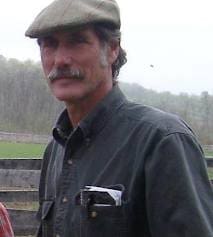
Ridge Shinn advocates raising beef on a 100% grass diet to change the present model of beef production and distribution in North America, resulting in an ecologically based and economically sustainable system. Large-scale implementation would lead to improved human health, energy savings, and an increase in carbon sequestration, soil fertility, and biodiversity. He has developed markets and distribution systems for grass-fed and grass-finished beef throughout the northeastern United States. Ridge has been featured in TIME Magazine, “Save the Planet, Eat More Beef (grass-feeding required)”; Atlantic Monthly, “Back to Grass”; The New York Times, “The Greening of the Herd”; and other major media outlets. His website is https://www.bigpicturebeef.com/.
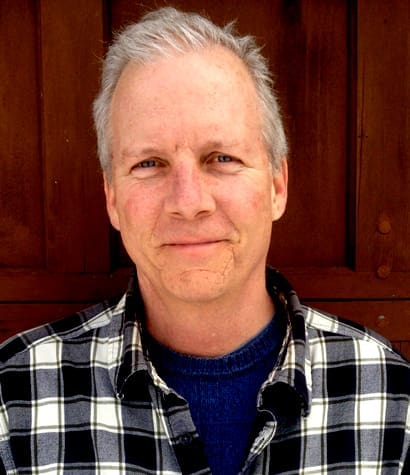
Mark Smith is co-founder and President of Brookwood Community Farm, a non-profit organic farm bordering Boston in the Blue Hills. The farm is committed to growing good food with sustainable practices to improve food security for nearby residents. Formerly, Mark was the communications director for the national family farm organization Farm Aid.
Seeds of Sustainability is student club based in Fall River, Massachusetts at Bristol Community College whose goals are to encourage and promote education, leadership and the practice of sustainable living. SOS aims to provide the availability of fresh, local and organic food on campus, to support local organic agriculture and to foster sustainable practices throughout the surrounding community. Another of its objectives is to build a lasting relationship between the school’s administration, the student body and eventually the greater community. SOS is building a foundation for present and future members to grow in three major areas of a sustainable lifestyle. These are to be economically sound, ecologically responsible and socially equitable.
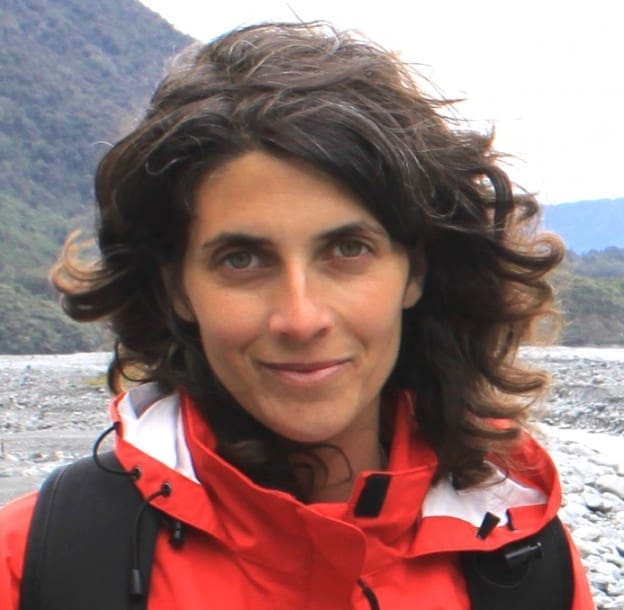
Liz Wiley is the Program Manager for Round the Bend Farm, a program of the Marion Institute, where she is developing infrastructure for a Learning Center that will accommodate workshops in food and farming, sustainability, health and wellness. Trained as a biologist, she helped pioneer methods to rescue mass stranded whales and dolphins, investigated the impact of noise on killer whales in the San Juan Islands and flew thousands of miles mapping the location of critically endangered North Atlantic right whales.
While passionate about environmental protection, her experience as a woman in science led to a greater commitment in improving the lives of underserved women and the need to form healthy communities that combine environmental and social needs. In 2007, she began working for Bristol Community College (BCC) where she developed the highly successful WISE Women program, implemented multiple grant initiatives focused on workforce development, developed the Master Gardener program. and helped launch eHealth, an innovative private/public partnership that brought online health oriented programs to the college. During this time, Liz received her MS in Organizational Management and Leadership from Antioch University-New England, where her thesis focused on the ‘Role of Women in Creating and Maintaining Sustainable Communities’.
After spending much of 2011 living in New Zealand, Liz returned to BCC as the Director of the Green Center, a program focused on workforce training in support of the green economy. Under Liz’s direction, the Center grew into a major force for developing the green economy in the Southcoast region. She has taught courses at Boston University and BCC and is a certified yoga teacher. Liz and her family – Dave, Luke, Nathan, and Kaia – live in Wareham.
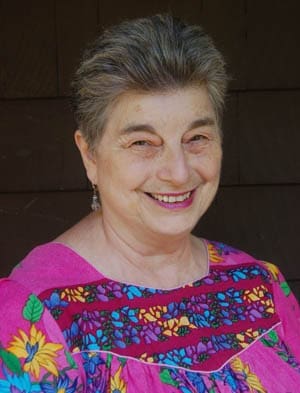
Nancy Lee Wood, Ph.D. is Professor of Sociology at Bristol Community College (BCC) in Fall River, MA and Director of the Institute for Sustainability and Post-carbon Education (ISPE), which she established in 2008. She is a life-long activist, participating in the anti-Vietnam War/Peace Movement, the anti-Nuclear Movement, the anti-Apartheid Movement, the International Women’s Movement and most recently, the Climate Change/Peak Oil Movement and has taken leading roles with many other peace and sustainability organizations. Since 2007, she has organized numerous local sustainability events and has given many presentations and lectures regarding the impacts of fossil fuel depletion on industrial society. Currently she is developing an Associate Degree major in Sustainability for BCC as a model for other community colleges to adopt. In her spare time, she is training to become a Master Gardener.
